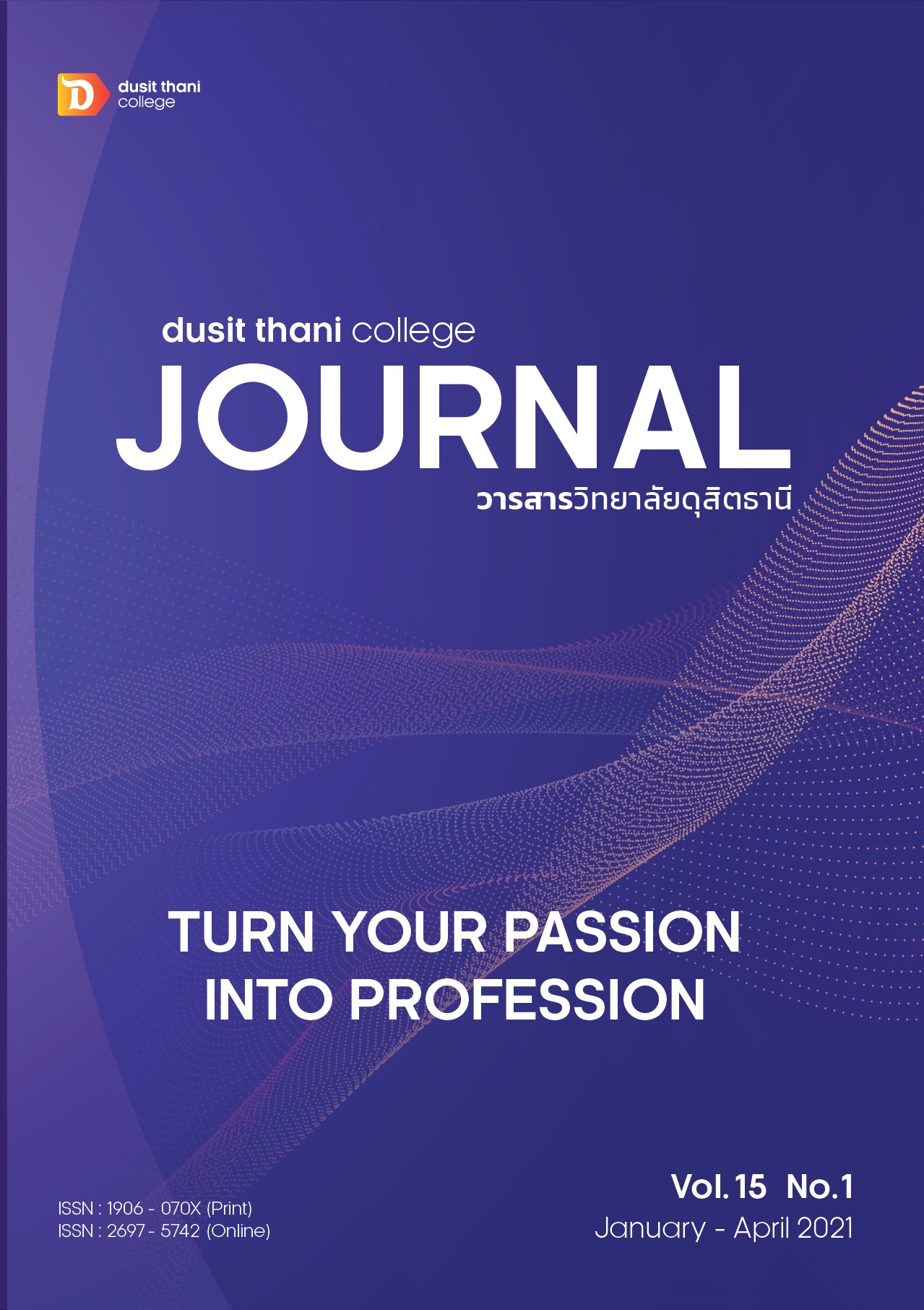DEVELOPMENT OF UNIQUE COMMUNITY FOOD PRODUCTS FOR IMPROVING POTENTIAL OF COMMUNITY TOURISM OF THAI-MUSLIM COMMUNITY
Main Article Content
Abstract
This research aims to 1) studied on local wisdom of local food production based on identity of Thai-Muslim community; 2) developed at least 2 local food recipes representing identity of Thai-Muslim community; and 3) developed potential and improve knowledge and abilities of personnel in community enterprise group by managing community enterprise to support tourism. Qualitative research consists of in-depth interviews lesson learned and developmental research. The results revealed that menu, ingredients, and cooking provided information on producing local food based on identity of Thai-Muslim community leading to development of food products from ingredients found in such community whereas uniqueness of Muslim spices must be conserved in order to enable consumers to experience the taste of Muslim. In addition, uniqueness of food from community resources should be maintained and cleanliness should be more emphasized than luxuriousness. For distribution, food should be distributed under “community restaurant” with: 1) the recipe for visitor groups and tourists of Thai-Muslim community consisted of: 1.1) unique Muslim food the community restaurant; 1.2) Local food, 2) The recipe for events related to tourism and hotel or resort entrepreneur groups. The result of potential development for improving knowledge and abilities of personnel in community enterprise on planning tourism program or participating in mutual study trip on creating recipes reflecting identity’s identity could be concluded that travel routes of the community could be divided into 3 styles including: Route 1 – Royal Initiative Projects; Route 2 – community’s way of life; and Route 3 – natural tourism. To develop tourism, it was very necessary to gain cooperation from community by providing some opportunities to stakeholders in community to manage the community’s areas and lower poverty while increasing income of local people.
Article Details
Article Screening Policy
- All research and academic articles to be published must be considered and screened by three peer reviews in the relevant field / article.
- All articles, texts, illustrations and tables published in the journal are the personal opinions of the authors. Editors don't always have to agree. And no responsibility whatsoever is the sole responsibility of the author.
- The articles to be published must never be published. Where did you first publish? And not in the consideration of other journals If the audit found that there has been a duplicate publication It is the sole responsibility of the author.
- Any article that the reader sees as being plagiarized or impersonated without reference. Or mislead the work of the author Please let the journal editor know it will be your greatest blessing.
References
Chantuk, Thirawat. et. al. (2017). Development on Career in a Community Based on Muslim Identities with Sufficiency Economy for Home Management Center. National Research Council of Thailand (NRCT). The Thailand Research Fund (TRF). And Silpakorn University.
Charoensin-o-larn, Chairat. (2000). Development Discourse : Power Knowledge Truth Identity and Otherness. Bangkok : Wipasa.
Chumkate, Jittapon. et. al. (2018). The development of managing the Enterprise for tourism of Thai – Muslim village. National Research Council of Thailand (NRCT). The Thailand Research Fund (TRF). And Silpakorn University.
Denzin, Norman K. (1978): The Research Act: A Theoretical Introduction to Sociological Methods. New York: McGraw-Hill
McMillan, Thomas T .(1971). The Delphi Technique. paper presented at annual meeting of California Junior. College Association Commission on Research and Development (3 May 1971 Monterrey California .
Office of Secretary Board of Community Enterprise Promotion. (2005). Community enterprise promotion act in 2005. Bangkok: Department of Agricultural Extension, Ministry of Agriculture and Cooperatives.
Phlai Noi, Supawan. (2013). Various methods of science, lessons learned and knowledge synthesis. (6th edition). Bangkok: P.A. Living Co., Ltd.
Phongphit, S. (2003) . Planing of life community economy. Bangkok: Thailand wisdom publishing.
Siriwong, Phitak. et. al. (2016). Development of the Guidelines on Participatory Community Management for Supporting Agro-Tourism management with Identity in Muslim Village. National Research Council of Thailand (NRCT). The Thailand Research Fund (TRF). And Silpakorn University.
Stryker S. (1989). Further Developments in Identity Theory : Singularity Versus Multiplicity of Self , in Sociological Theories in Process: New Formulations. Edited by Berger, J., Zelditch, M. & Anderson, B. p.35-57. Newbury Park : SAGE.
Suanplang, Pannee. et al. (2016). Food Tourism. Tourism Economic Conditions Report, 4 (2): 38-45.
Sunee Sakdadej. (2006). Local food. Chanthaburi: Faculty of Science and Technology, Rambhaibarni Rajabhat University.
Tanprayoon, Pranee. (2014). Study of tourism management and tourism management model. Justly With the participation of the community The case of Lat Chado ancient market Phak Hai District, Phra Nakhon Si Ayutthaya Province. University Phranakhon Si Ayutthaya Rajabhat University
The Scottish Community Development Centre. (2014). What is Community Development? Retrieved form http://www.scdc.org.uk/who/what-is-community-development.
Thepsittha, Somporn. (2006). Sufficiency economy according to the royal administration. Bangkok: National Youth Association Council.
Vasuthonphiphat, Peerakarn. (2010). Halan food consumption behavior of Thai consumers in Bangkok area. Thesis, Srinakharinwirot University.


